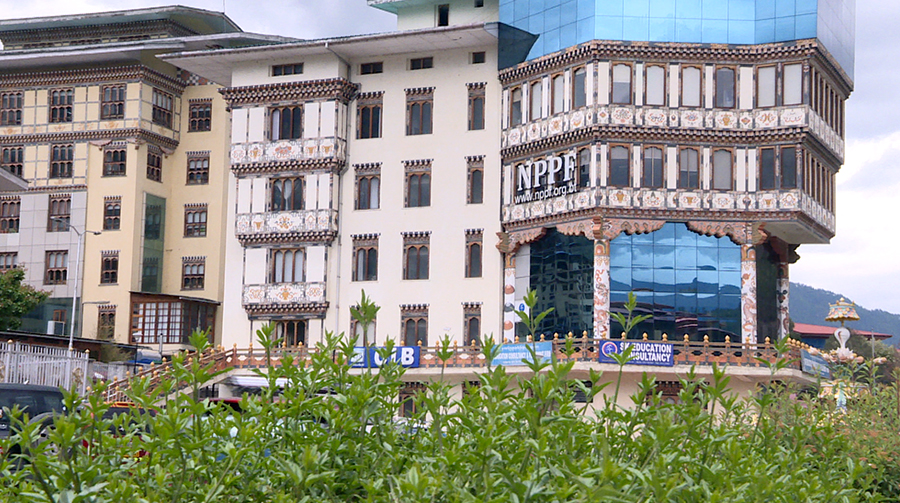
Despite the erstwhile Labour Ministry making it mandatory for all private companies to join the provident fund or PF scheme with an authorised financial institution last year, some private employees allege their employers of not having joined the scheme. This is despite their companies deducting five per cent of their salary for supposed contributions to the scheme. In the last five years, authorities registered 110 cases related to non-payment of post-retirement benefits from which 39 were forwarded to the court.
Chapter 11 of the Regulation on Working Conditions, 2022 states that both the employer and employee should mandatorily participate in a Provident Fund Scheme on completion of the probation period.
It also states that the employer and the employee both shall contribute a minimum of five per cent of an employee’s monthly salary to the staff’s PF account. It is a way to retain employees while they earn benefits upon retirement.
The Bhutan Insurance Limited, BIL and the Royal Insurance Corporation of Bhutan, RICB started the Provident Fund Scheme for the private sector in 2010. Later, in 2021 the National Pension and Provident Fund, NPPF also started the scheme for the private sector.
With the introduction of the Private Provident Fund, the employers and the employees were generally benefited. However, some employees were not given their provident fund benefits when they left their jobs.
“Well, it is good that they contribute the deduction to the provident fund. The manager deducts it from the salary but there is no transparency. I heard the PF contribution is deducted from our salary but when one of my friends left the job and asked for her PF benefits, the manager said that he didn’t deposit the amount. However, the manager would keep telling us that he is deducting the amount and depositing it into our PF account. The meagre amount we get as salary is also lost without any tangible benefit,” said a private employee.
The RICBL and BIL have received several complaints regarding the issue from several private employees. According to a manager with the BIL, once they give the PF benefits to the employers, it is out of their jurisdiction to ask the companies if the amount is handed over to the employee concerned.
“From our side, we don’t delay when releasing the PF benefits. As long as the required documents are complete, we give them to them at the earliest. When we give the refund to the employers, we do not know if they give it to the employees or not. If the employees do not get the refund, it could be because they took an advance or there are some bills to be settled with the company,” said Dorji Gyeltshen, the manager of Bhutan Insurance Limited.
However, the Labour Protection Division under the Ministry of Industry, Commerce and Employment said that they inspect when employers and employees fail to deposit the monthly PF contributions. After the inspection, the division provides improvement notices to employers and penalises them if they are found not depositing the monthly contribution.
Non-deposit of provident fund contributions by the employees is also liable for penalty. However, employees can complain to the division if their employees do not deposit the contribution.
On the other hand, private companies say that when their staff abscond their jobs before their contracts end, it becomes difficult for them to claim the staff’s provident fund without their consent. They say the Regulation on Working Conditions mostly favours the employees and there are no provisions where the employer can claim the amount deposited when a staff absconds.
Currently, there are around 1,300 active provident fund members from the private sector with the NPPF, 4600 with the Bhutan Insurance Limited and more than 800 with RICB.
Sonam Yuden
Edited by Kipchu







